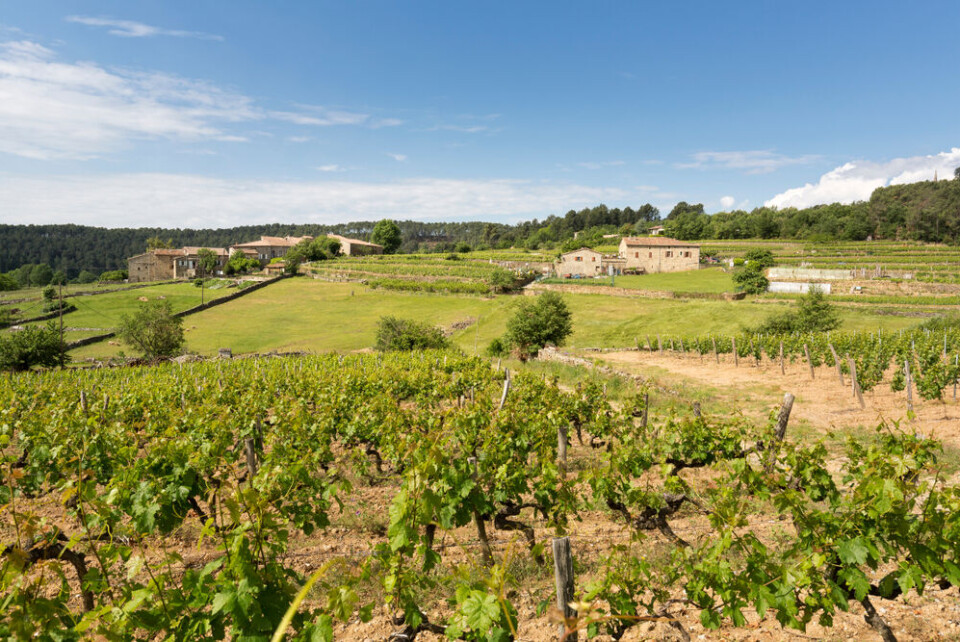-
British ‘Puppet Master’ conman in French jail wins phones back on appeal
Robert Hendy-Freegard was given a six-year sentence after hitting two gendarmes with his car
-
Alleged British hacker in jail in France offers to help with police data breach
Recent attack targeted police files
-
‘Elves crossing’: Normandy village installs fun roadsigns for Christmas
Heuland has also cleared its airspace to ensure safe passage for Santa Claus and his reindeer
Much-admired French environmentalist Pierre Rabhi dies age 83
Tributes have begun to pour in for the farmer, writer and environmental campaigner, who died yesterday

French farmer, writer, philosopher and environmentalist Pierre Rabhi has died at the age of 83, his family has confirmed.
He died on Saturday, November 4, from a cerebral haemorrhage, his family confirmed to AFP.
Décès à 83 ans de Pierre Rabhi, écrivain et figure de l'agroécologie (famille) #AFP pic.twitter.com/S7KxmVwsrf
— Agence France-Presse (@afpfr) December 4, 2021
The prolific polymath and author of Vers la sobriété heureuse (published as The Power of Restraint in English) was in recent years hailed for his beliefs on environmentalism, capitalism, and happiness by well-known figures including Cyril Dion and Marion Cotillard.
The French Buddhist monk Mathieu Ricard termed him “a brother of consciousness”.
He will be remembered as one of the pioneers of ‘agroecology’, which aims to regenerate the natural environment by excluding pesticides and chemical fertilisers.
He was also an environmentalist supported by animal and bird welfare and environment campaigners such as la Ligue pour la protection des oiseaux (LPO).
Mr Rabhi was born as Rabah in Algeria in 1938. His father allowed a family of French settlers in the village to raise his son, in a bid to give him a better education. His name Rabah was changed to Pierre, and he spent his life in France and Algeria until age 14.
The writer has since said that “there were a lot of heartbreaks, breaks and suffering" in his life. In 1961, he moved to Ardèche and lived on a farm, after having left Algeria at the beginning of what he termed the "events", and feeling dissatisfied with the "incarceration" of life in Paris.
He briefly ran as a presidential candidate in 2002, in a bid to "introduce the ecological and human emergency into the debate". Sixteen years later in 2018, however, he told Le Monde: "The solution does not come through politics, it comes through the raising of awareness.”
An admirer of Socrates, he once said: “Each human being must try to know themselves in order to change positively.”
Mr Rabhi also co-founded the Colibris ‘citizen’s movement’, which called for local community actions such as shared gardens, educational farms and the establishment of short supply chains.
Mr Rabhi has five children.
After his death was announced, several political figures, especially green party members, posted their condolences.
Former environment minister Ségolène Royal said that he was “a labourer of the earth and labourer of conscience”, while Chantal Jouanno, president of public debate commission la Commission nationale du débat public, said: "He seemed immortal, like his ideas.”
Green presidential candidate Yannick Jadot paid tribute to the memory of "one of the great precursors of agro-ecology", while finalist in the Europe Ecologie-Les Verts primary, Sandrine Rousseau, paid tribute to an "incredible precursor of ecology".
However, she did mention his "conservative" positions on societal issues such as homosexuality, in reference to his controversial remarks on gay marriage and medically assisted reproduction in 2015.
Cher Pierre #Rabhi vous nous manquez déjà terriblement, une tristesse profonde nous envahit. Laboureur de la terre et laboureur des consciences, vous nous avez appris l’humilité dans l’immensité de la tâche. Permettez-moi de partager ce souvenir émouvant https://t.co/deFtvIRQyj
— Ségolène Royal (@RoyalSegolene) December 4, 2021
Anne Hidalgo, the Socialist presidential candidate, said Mr Rabhi was a "thinker and writer who was committed to protecting our planet", while Green MEP David Cormand hailed him as a man who "was committed to doing his part with humility, for a society with a peaceful relationship with nature, and who invited [everyone] to do theirs".
In November 2018, The Connexion interviewed Mr Rabhi.
On the subject of his book, The Power of Restraint, he explained: “We live in a world where there is one part that is suffering from over consumption and which throws too much away, and another part where there is still famine. We produce 40% more than we need.
“One-fifth of our world, of which I am a part, uses four-fifths of the world’s resources. I cannot morally accept that situation. To change that we need to adopt more modest lifestyles. In our society, we have more than enough to eat, but even then we are not happy.
“There is no joie de vivre. People in the West are always worrying about what they do not have, rather than enjoying what they do have. If we were producing all these goods and people were satisfied, then maybe our civilisation would have been successful, but people are not happy, so we must change things.”
























